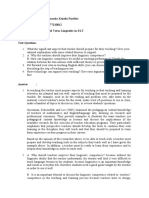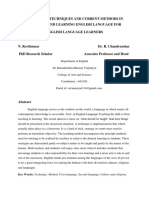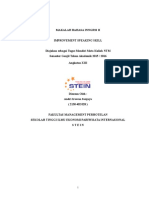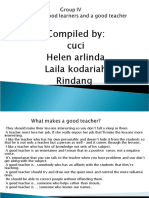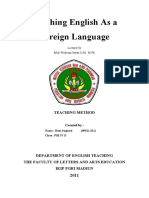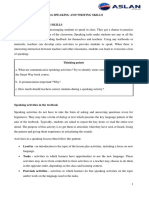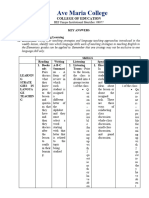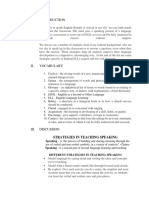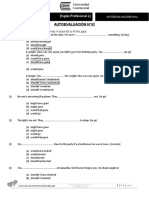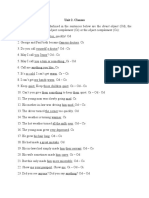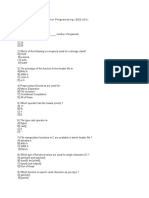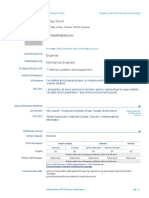0% found this document useful (0 votes)
41 views8 pagesPROPOSAL
The document discusses building English language skills in students at Liceo Cristiano Israel by combining the four skills of listening, speaking, reading and writing with affective factors. It provides theoretical background on the importance of English and students' emotions. It then outlines tasks to develop each skill and recommendations to stay motivated in learning English.
Uploaded by
Jonathan Fernando Muñoz ZambranoCopyright
© © All Rights Reserved
We take content rights seriously. If you suspect this is your content, claim it here.
Available Formats
Download as PDF, TXT or read online on Scribd
0% found this document useful (0 votes)
41 views8 pagesPROPOSAL
The document discusses building English language skills in students at Liceo Cristiano Israel by combining the four skills of listening, speaking, reading and writing with affective factors. It provides theoretical background on the importance of English and students' emotions. It then outlines tasks to develop each skill and recommendations to stay motivated in learning English.
Uploaded by
Jonathan Fernando Muñoz ZambranoCopyright
© © All Rights Reserved
We take content rights seriously. If you suspect this is your content, claim it here.
Available Formats
Download as PDF, TXT or read online on Scribd
/ 8

